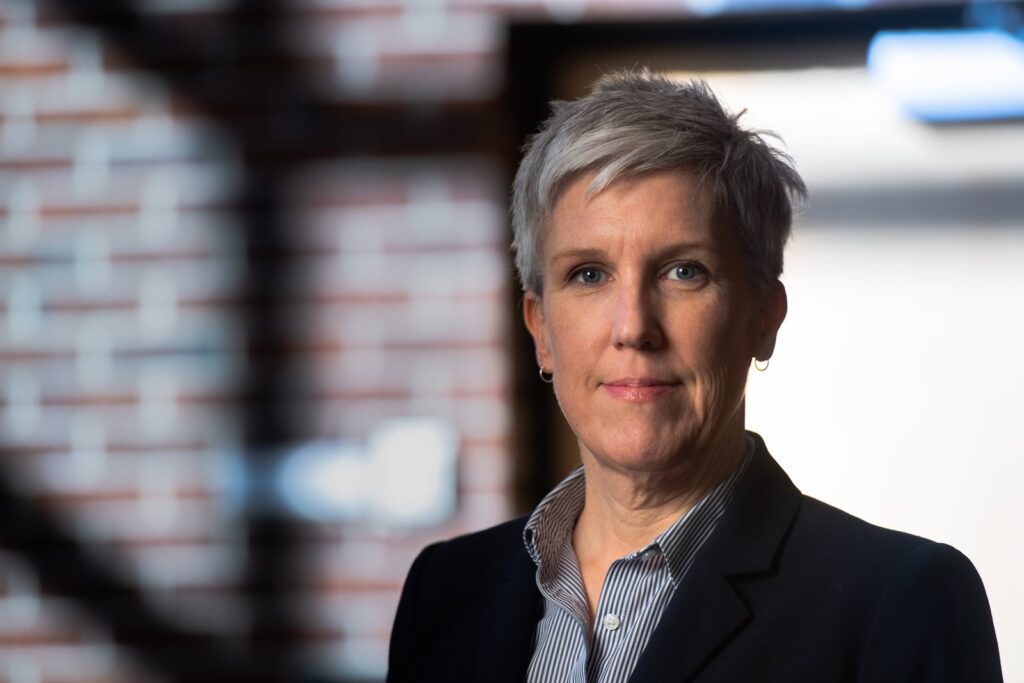
By Douglas Esser
After receiving a doctorate in history, Penelope Moon started teaching seminar-like classes at a small liberal arts college where, more than 20 years ago, they would “look down their noses” at online learning. Then she moved to Arizona State University, one of the leading institutions for online learning with more than 30,000 students in 150 programs and high-profile partnerships with Starbucks and the Mayo Clinic.
“As soon as I started teaching online, I saw its potential,” Moon said. “It’s super rewarding. It has completely transformed the way I teach and the way I think about engaging with students. It has made me a better teacher actually.”
In addition to her work as an associate clinical professor at ASU, Moon became director of online programs for the School of Historical, Philosophical and Religious Studies.
Now, she’s focused on online learning opportunities for University of Washington Bothell students. Moon this year joined the university to serve as the e-learning planning and design specialist in the Office of Digital Learning & Innovation (DLI).
“I really wanted to be in on the ground floor in developing the systems that will help the university deliver online education,” Moon said.
Engaging more students
DLI, a team formerly known as Learning Technologies, has helped UW Bothell faculty build more than 250 hybrid courses (defined as being at least 50 percent online) and more than 90 fully online courses. At a minimum, those courses have served more than 6,500 students and counting.
Research has shown that online students perform as well as students in face-to-face environments, Moon said. And, online courses can extend the university’s impact by reaching students where they’re at and when it fits their schedules.
“As more and more of our students juggle jobs, family responsibilities and significant commutes, it makes sense for us to use online,” Moon said.
Although she’s now an administrator, Moon still thinks like a teacher when she talks about how to engage students in online learning environments.
“Besides lectures, videos and weblinks to tons of content, online instructors can engage students through Skype or Zoom teleconferencing, through email and on the phone,” Moon said. “Professors who are skittish about online often think they won’t be able to have discussions with their students, but they can!”
In her experience, Moon found student participation was greater in discussion boards than in classrooms. “They have the time to think, reflect, craft their answers, revisit the text or revisit the lecture.”
More than classes
Moon also developed a closed Facebook group for all the students and professors in her ASU program.
“It’s the equivalent of going out for coffee after class where you could be a history nerd and share your triumphs or tribulations. There was a lot of peer mentoring,” Moon said. “One of the things that you need to do to be successful is to make sure that your students are fully incorporated into the social and intellectual life of the university.”
Moon aspires to develop online programming that respects academic integrity and the dignity of faculty and students.
“Online can help us reach new and different students — and to do it in ways that are consistent with the values of the University of Washington Bothell.”



